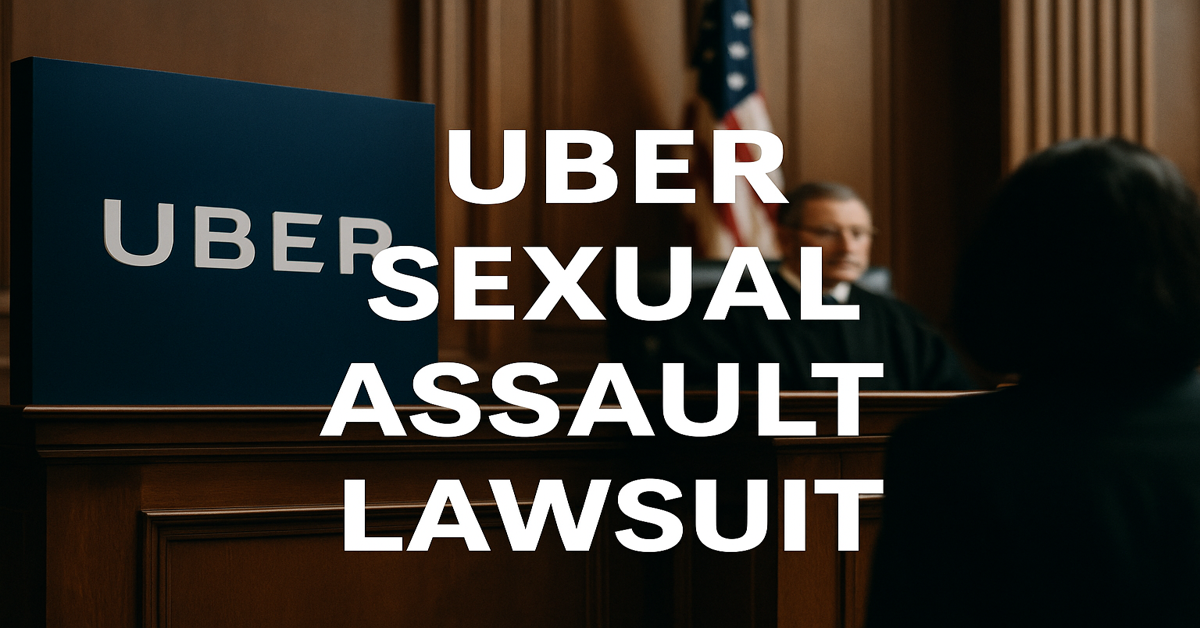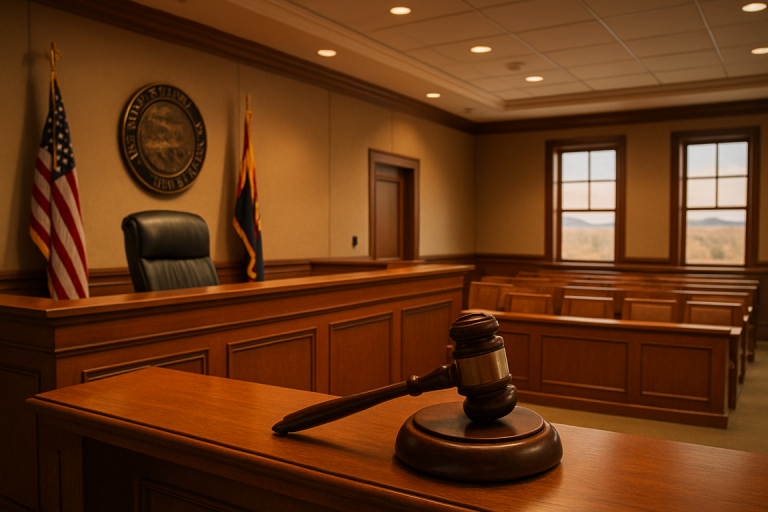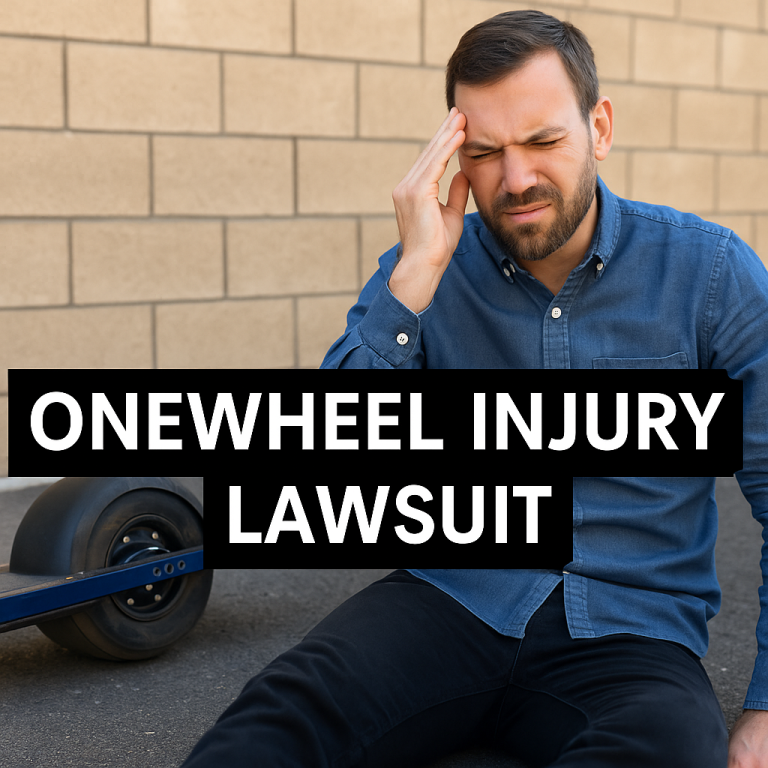Uber sexual assault lawsuits are rising fast in 2025. More riders are coming forward to report abuse during trips. These lawsuits expose serious flaws in Uber’s safety systems. Victims say the company ignored warning signs. They claim Uber failed to take action even after repeated reports.
The stories are heartbreaking. Victims trusted the platform to get home safely. Instead, many faced threats, groping, and worse. Survivors now seek justice in public courts. They want accountability, change and safety—not just promises. These cases are shaping rideshare policies and pushing for stronger laws nationwide.
What Are These Lawsuits Really About?
Uber sexual assault lawsuits come from riders who say they were assaulted by drivers. Many of these assaults happened during solo trips or in isolated areas. The survivors say Uber failed to protect them.
Here’s what the lawsuits claim:
- Uber didn’t check driver records thoroughly. Some drivers had criminal backgrounds. Others had past complaints from riders. Uber still let them drive.
- Uber ignored multiple rider complaints. Victims reported threats, unwanted touching, and dangerous behavior. Uber either didn’t respond or closed the case quickly.
- Uber didn’t offer timely help after incidents. Survivors reached out for help. Most got automated messages. Some never heard back at all.
More than 5,900 reported assaults happened from 2017 to 2020. And these are just the ones we know. Every month, new lawsuits appear. Each one tells a personal story of fear and failure.
What Changed in the Courts This Year?
In March 2025, a big legal shift happened. The 9th Circuit Court said Uber cannot use forced arbitration anymore. That ruling changed everything. Now survivors can sue Uber in public court. This allows full transparency. Here’s what that means:
- Judges, not private mediators, handle the cases. Court trials mean survivors get a fair hearing in front of the public.
- The public sees how the company responds. Court records show how Uber treats each case. No more secrecy.
- Uber can’t hide repeated failures. Each new case builds public pressure. It forces real changes inside the company.
Why Are More People Taking Action?
Social media gives survivors a voice. Advocacy groups give support. Legal aid makes it easier to fight back. Patterns keep repeating. Drivers with past warnings still work. Uber doesn’t act fast. Victims feel ignored. When people see these patterns, they realize they’re not alone. That’s when they file lawsuits. Many survivors now share their stories online. That courage inspires others to come forward.
Is Uber’s Safety Tech Enough?
Uber promotes safety tools. But many riders say those tools failed them. Let’s look at what’s offered:
- Live trip tracking This sends real-time trip details to a contact. Some riders say the feature didn’t alert anyone in time.
- Emergency buttons These connect to emergency services. Victims report long delays or no response after using it.
- Hidden numbers Riders and drivers use temporary numbers. That prevents direct calls, but it doesn’t stop threats or stalking.
These tools sound helpful on paper. But survivors say they don’t work when it matters most.
Is Uber Supporting Victims?
Survivors want to feel heard. Most say Uber failed to provide basic support. Here’s what usually happens:
- Victims report the incident in the app.
- Uber sends an automatic message.
- The case closes without real answers.
Many survivors never speak to a real person. Some even see the same driver active days later. Victims want more than a reply. They want care, updates and want to know their case matters.
What Happened in the 2022 Settlement?
In 2022, Uber settled with 550 women. These women were victims of assault or harassment. The payout terms were kept private. Uber promised changes. But new lawsuits say those promises fell flat. Riders still face the same dangers. That 2022 case should have been a turning point. Instead, it became one more example of missed action.
What Do Victims Want Now?
Victims are asking for big changes. They don’t want hush money. They want protection.
Here’s what they demand:
- Fingerprint checks for all drivers This would reveal past arrests and serious offenses. Many jobs already require this. Rideshare drivers should too.
- Faster bans on dangerous drivers When a complaint comes in, Uber must act fast. Waiting puts more riders at risk.
- Public safety data Uber should release regular safety reports. Riders deserve to know the risks.
- Trained staff to handle reports Uber needs real people—not bots—to respond to trauma cases. Those staff should understand how to support survivors.
How Has the Industry Reacted?
Other companies are watching. Some are making safety a key feature. Here’s what’s changed:
- Women-only driver options Some apps let female riders match only with female drivers. This gives riders more control.
- Extra rider ID checks New apps now ask for ID photos and live verification. This deters fake profiles.
- Live trip links to friends Trips are shared in real time. Friends can track your ride and know when you arrive.
These features show that safety is possible. Riders have options. Uber needs to catch up.
What Are Advocacy Groups Doing?
Survivor-led groups are taking action. They help victims, push new laws, and hold companies accountable.
Here are their goals:
- Yearly app audits Apps should be checked by independent safety teams. These audits must be public.
- Public reporting lines Victims shouldn’t rely only on app support. Cities need outside help lines to report issues.
- Mental health funds for victims Some survivors need therapy. Advocacy groups say Uber should help pay for it.
What Laws Have States Passed?
Lawmakers are stepping in. States want stricter rules.
So far:
- California requires companies to report assault cases to regulators.
- New York reviews drivers yearly to keep unsafe ones out.
Other states are planning:
- Fingerprint background checks
- Faster driver suspensions after serious complaints
- Big fines for ignoring victim reports
Federal lawmakers are drafting national rideshare safety standards too.
What Can Victims Get in Court?
Lawsuits help survivors recover what they lost. Victims can ask for money to cover:
- Medical costs Emergency care and follow-ups can be expensive. Survivors should not bear that burden.
- Mental health care Many victims need counseling. That care must be covered.
- Lost work time Some victims miss work during recovery. Lawsuits cover those wages.
- Pain and suffering This includes emotional trauma, nightmares, and long-term fear.
Courts may also award extra money if Uber’s neglect was extreme.
Why Legal Help Matters
The legal process is complex. Victims shouldn’t face it alone.
Lawyers:
- Gather evidence like ride records and chat logs
- Handle communication with Uber’s legal team
- Push for fair settlements or go to trial if needed
A good lawyer increases the chance of winning the case. They also protect the victim’s rights throughout the process.
How You Can Stay Safer in a Ride
Check Details Before Getting In Verify the driver’s name, photo, car make, and license plate before entering. Cancel if anything doesn’t match.
- Share Your Trip Live Send your ride status to a friend. Let someone track your route in real time.
- Choose the Back Seat The back seat provides more space and a quicker exit if needed.
- Watch the Route Closely Follow the trip on your phone.
- If the driver deviates, ask questions. Exit if you feel unsafe.
- Report Quickly Use the app and call 911 if you feel threatened. Early action protects others too.
Common Questions About Uber Sexual Assault Lawsuits
Can You Sue Uber for Sexual Assault?
Yes. If the company failed to keep you safe, you can sue.
Do You Have to Go to Court?
No. Many lawsuits end in settlements. A lawyer can advise on the best path.
Can You Stay Anonymous?
Yes. Some courts let you use initials or a pseudonym to protect your identity.
What Happens After Filing a Lawsuit?
Your lawyer gathers facts. They submit documents. They negotiate or prepare for trial.
Uber Sexual Assault Lawsuits in 2025: What You Should Know
Uber sexual assault lawsuits reveal a deep safety crisis. Thousands of victims trusted the app. The system failed them. These riders aren’t just suing for money. They want real change. Now courts are listening. Lawmakers are acting. The public is watching. These stories are painful—but they matter. They force tech companies to take safety seriously.
If you use rideshare apps, stay alert. Know your rights. Use safety tools. And if something feels wrong, report it. Your voice matters. Your safety matters. Together, we can make rides safer for everyone.
Ayesha Awais is a content writer for JudicialNexus.com, covering accident reports, injury-related news, lawsuits, and public safety updates. All content is informational in nature and based on publicly available sources.




